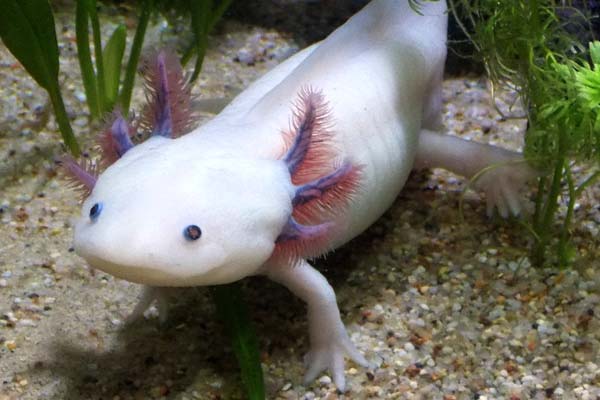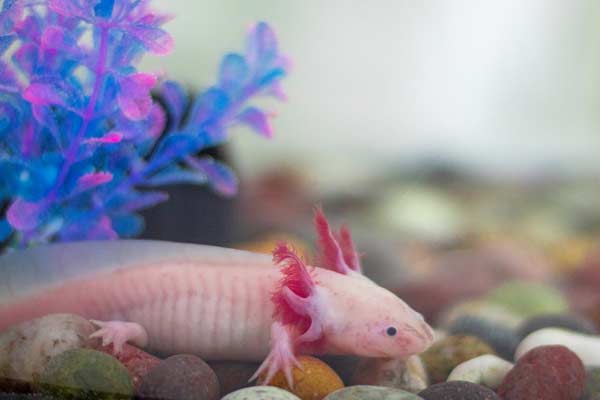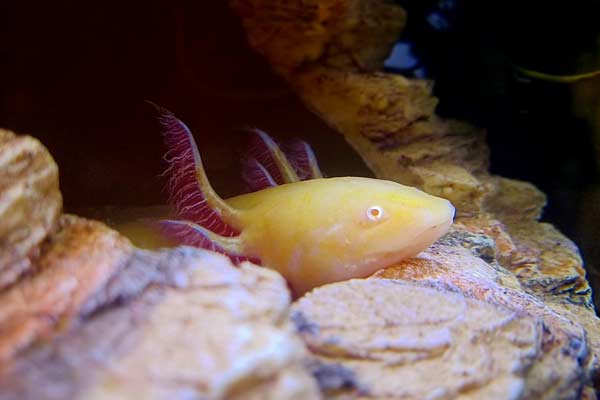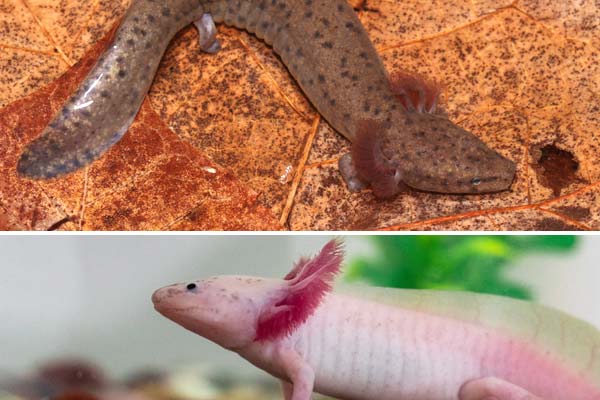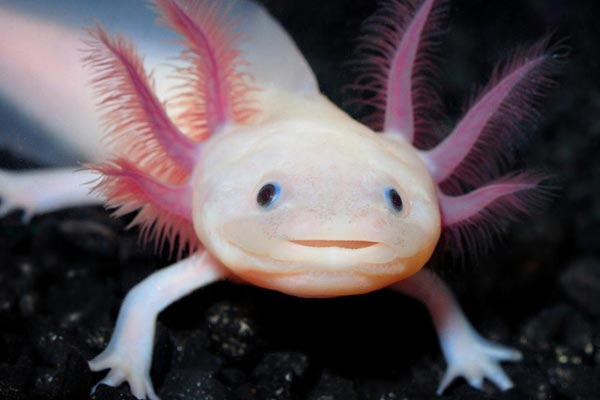Are Axolotls Illegal in Texas? Here’s What You Need to Know
Axolotls are a unique species of salamander that have become increasingly popular as exotic pets. However, before bringing one into your home, knowing the laws and regulations regarding their ownership is crucial. One question that many people have is whether axolotls are illegal in Texas.
The answer is that in Texas, axolotls are not illegal, and as long as the owner abides by all applicable laws and rules, an axolotl may be kept as a pet.
However, it is essential to note that while there are no legal consequences for owning an axolotl in Texas, it is illegal to import or export this exotic animal without a permit.
Are Axolotls Illegal in Texas?
In Texas, axolotls are not illegal, and as long as the owner abides by all applicable laws and rules, an axolotl may be kept as a pet. However, it is essential to note that axolotls are considered non-native aquatic species in Texas and, therefore, require a permit to own.
According to the Texas Administrative Code, possessing non-native aquatic species without a permit is illegal. This includes axolotls, native to lakes in central Mexico but have been introduced to various locations outside their natural range, including the United States.
It is important to note that axolotls cannot be imported or exported without a permit. This means that if someone wants to obtain an axolotl as a pet, they must get it from a legal source in Texas.
As of the current date, there have been no recent changes or updates to the law regarding the legality of axolotls in Texas. However, verifying the current legality status through reputable sources, such as the Texas Parks and Wildlife Department, is always essential.
Legal Alternatives to Axolotls in Texas
A few legal alternatives are available for those interested in owning an aquatic pet but cannot own an axolotl due to legal restrictions. Here are some options for axolotl enthusiasts in Texas:
Other Legal Aquatic Pets Suitable for Axolotl Enthusiasts
Tiger Salamanders: Tiger salamanders are a popular alternative to axolotls in Texas. They are also from the Ambystomatidae family and appear similar to axolotls. In Texas, it is legal to own these animals, and they are commonly available in most pet stores that offer exotic creatures for sale.
Fish: Fish is another excellent option for those who cannot own an axolotl. Many different types of fish can be kept in an aquarium, such as goldfish, guppies, and bettas. They are easy to care for and can be found in most pet stores.
Similarities and Differences between Axolotls and Alternative Pets
While tiger salamanders and fish are great alternatives to axolotls, they differ. Tiger salamanders are not fully aquatic and require a land area in their enclosure, while axolotls are fully aquatic. Fish also have different care requirements and cannot be handled like axolotls or tiger salamanders.
Popular Legal Alternatives in Texas
In addition to tiger salamanders and fish, other legal alternatives are popular in Texas. Some of these include:
African Dwarf Frogs: African dwarf frogs are tiny, aquatic frogs that are easy to care for and can be found in most pet stores. They are social animals and can be kept in groups.
Red-Eared Sliders: Red-eared sliders are a type of turtle legally owned in Texas. They require a large enclosure and need both land and water areas.
Cross-Breed Aquatic Pets: Some pet stores in Texas sell cross-breed aquatic pets, such as axolotl-tiger salamander hybrids. These hybrids are legal in Texas and can be a unique alternative to owning a purebred axolotl.
Legal Considerations for Keeping Axolotls
When owning axolotls in Texas, there are several legal considerations to remember. This section will provide an overview of the laws and regulations regarding exotic pets in Texas, an overview of the Texas Parks and Wildlife Department (TPWD) regulations, specific rules and permits related to axolotls in Texas, and the penalties for owning or selling illegal axolotls.
Laws and Regulations Regarding Exotic Pets in Texas
Texas law regulates the possession, import, export, and sale of certain exotic animals, including axolotls. The state has a list of dangerous wild animals that require a permit to possess. While axolotls are not on the list, they are still regulated under Texas law.
Summary of the Texas Parks and Wildlife Department (TPWD) Regulations
The TPWD regulates the possession of certain wildlife species in Texas, including axolotls. The department requires individuals to obtain permits for possessing certain wildlife species, including axolotls. The permits are issued for research and educational purposes.
Specific Rules and Permits Related to Axolotls in Texas
In Texas, individuals who wish to possess axolotls must obtain a permit from the TPWD. The permit is required for both research and educational purposes. The permit must be received before the axolotls are brought into the state.
Penalties for Owning or Selling Illegal Axolotls
Owning or selling axolotls in Texas without the proper permits is illegal. Individuals caught owning or selling illegal axolotls can face fines and other penalties.
Axolotls are also considered an endangered species, and their possession without the proper permits can threaten their survival.
Responsible Pet Ownership and Axolotls
When considering keeping an axolotl as a pet, it is essential to understand the commitment and responsibilities involved. Axolotls are fascinating creatures that can make good pets but require proper care and attention to thrive in captivity.
General considerations for keeping axolotls as pets
Axolotls are amphibians that are native to Mexico and are not invasive species in Texas. They have become popular pets due to their unique appearance and ability to regenerate tissue.
However, it is essential to note that axolotls are unsuitable for everyone. They require specific environmental conditions and care and can live up to 10-15 years in captivity.
Guidelines for proper care, habitat setup, and feeding
Axolotls require a suitable habitat that mimics their natural environment. They are fully aquatic and need a tank with enough space to swim and explore.
The tank should have a filter to keep the water clean and aerated, and the temperature should be kept between 60-68°F. Axolotls are carnivorous creatures that rely on a diet of live or frozen foods, such as bloodworms, brine shrimp, or small fish pieces.
Importance of understanding the commitment and responsibilities involved
Keeping an axolotl as a pet requires a significant commitment and responsibility. Owners must be willing to provide the necessary care and attention to ensure their axolotl’s health and well-being.
This includes regular water changes, monitoring water quality, and providing appropriate food. Axolotls also require a stable environment, free from stressors such as loud noises or sudden movements.
Conservation and pet trade
Due to selective forces and habitat loss, axolotls are endangered in their natural habitat. The pet trade can contribute to conservation efforts by funding research and captive breeding programs. However, it is crucial to ensure that axolotls are obtained from reputable sources, not the wild.
Dangerous wild animals
Axolotls are not considered dangerous wild animals and are legal to own in Texas. However, it is essential to remember that they are living creatures and need proper care and attention.
Owners must take responsibility for their pet’s well-being and ensure they are not dangerous to themselves or others.
Conclusion
In conclusion, owning an axolotl in Texas is legal if the owner complies with all applicable laws and regulations. Axolotls are not considered illegal in Texas, but they are classified as non-native aquatic species. Therefore, owning an axolotl in Texas requires a permit.
Axolotls are unique creatures that can regenerate their limbs and organs, making them fascinating pets for some people.
However, it is essential to note that axolotls are critically endangered in their natural habitat due to habitat loss and pollution. Therefore, it is crucial to ensure that axolotls are responsibly bred and kept as pets to aid conservation efforts.
The decreasing population of axolotls in the wild is a concern, and taking measures to protect these creatures is essential. In Texas, axolotls are regulated to ensure their protection. Importing or exporting an axolotl without a permit is illegal and can have legal consequences.


